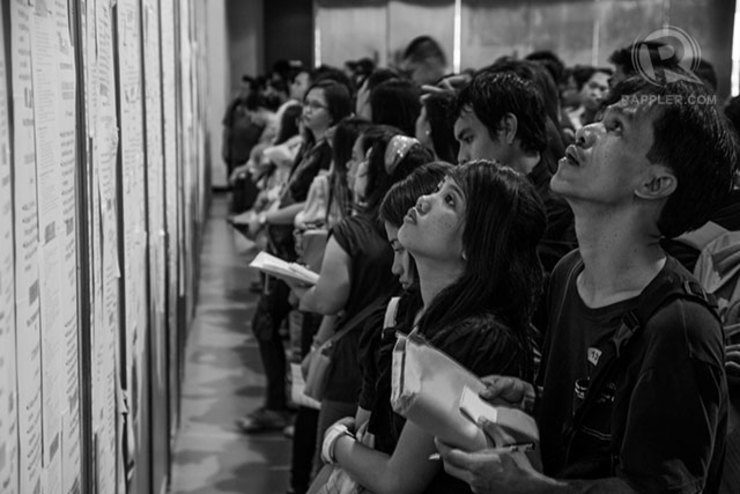SUMMARY
This is AI generated summarization, which may have errors. For context, always refer to the full article.

MANILA, Philippines – Several labor organizations asked the Supreme Court (SC) on Thursday, March 3, to declare the Wage Rationalization Act and abolish the 17 regional wage boards, saying these prevent equal protection of workers.
In a 29-page petition, they pointed out that that Republic Act 6727 led to different minimum wages in the regions, as determined by their respective wage boards. There are currently 17 regional wage boards in the country.
The petitioners are the Ugnayan ng Maralita Laban sa Kahirapan, senatorial candidate Walden Bello, National Federation of Labor, Solidarity of Independent and General Labor Organizations, Froilan Caratihan, Rusty dela Cruz, Emmanuel Flores Cavanas, and Shiela Baylosis.
Metro Manila prescribes a minimum daily wage of P481, the highest in the country. The Autonomous Region in Muslim Mindanao has the lowest minimum daily wage at P250.
“This disparitative absurdity is the effect of 26 years of implementing the provisions of RA 6727,” the petitioners said, citing more than 62 million workers who are affected.
The petitioners are also asking the High Court to stop the National Wage and Productivity Commission (NWPC) and the Regional Tripartite Wage and Productivity Boards (RTWPB) from issuing anymore regional wage orders.
To begin with, they said, the minimum wages set by NWPC and RTWPB have not met the living wage estimated by a number of think tanks. Ibon Foundation, for instance, said that, as of 2012, laborers getting a daily minimum wage of P446 actually need P1,017 to sustain their family. That represents a daily wage gap of P571.
“Minimum wages in the country have long failed to provide for an adequate living wage for laborers. This is due to the fact that the criteria in determining minimum wages, as defined by RA 6727, are patently erroneous, biased, and ultimately unconstitutional,” the petitioners said.
These criteria include demand for living wages, wage adjustment against the consumer price index, fair return for investors, and the employers’ capacity to pay.
The petitioners argued that the Constitution and international conventions do not say that fair return of capital by the employers is a requisite for paying a living wage.
“Although the petitioners are not unmindful of the macroeconomic fact that investment demands return, such must not be included in the equation of formulating a living wage, or even a minimum wage for that matter. Wages are exclusively under the ambit of laborers, to the exclusion of employers,” they said.
The petitioners said a number of laws already benefit investors and employers, so they should not be allowed to “hijack what is left of the workingman – fixing of wages.” – Rappler.com
Add a comment
How does this make you feel?
There are no comments yet. Add your comment to start the conversation.